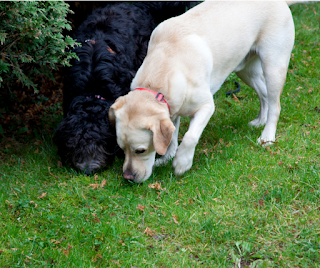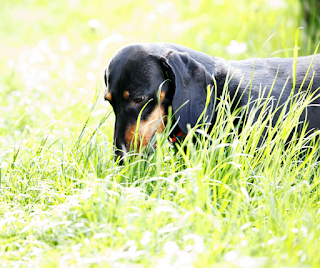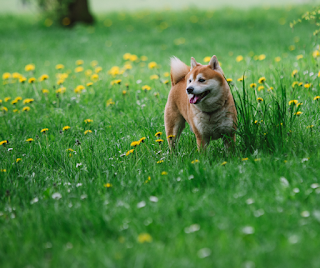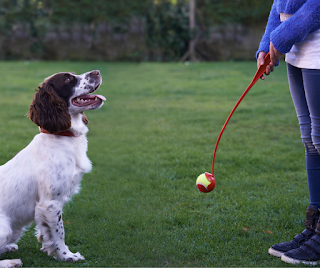5 Interesting Reasons Why Your Dog Eats Grass
5 Interesting Reasons Why Your Dog Eats Grass
Have you ever wondered why your dog is eating grass? Most commonly, owners see this as a sign of their dog feeling ill. However, there are actually several reasons why your dog may want to eat grass and we shall look at them below:
1. It Tastes Nice
The simple answer to this question is your dog enjoys the taste of the grass. This is especially common in Spring and Summer when the grass is fresher, green and new. There are hundreds of different varieties of grass here in the UK and each dog is likely to have their own favourite kinds.2. Feeling Bored
Grass eating can be an activity to bust boredom for your dog. This is particularly common in younger dogs as they tend to feel bored more quickly. If you think this may be case for your dog, try introducing some more enrichment activities to them to give their brain a good work out.3. Displacement
Dogs that are feeling uncomfortable or stressed in a situation may eat grass as a way of distracting themselves or removing themselves from the situation. This is known as displacement behaviour. This gives them a welcome distraction instead of them having to return to the setting that is making them feel stressed.If you think this may be the case for your dog, it would be sensible to stop the activity that is causing them distress as soon as possible.
4. Feeling Sick
Such as the old tale suggests, your dog may eat grass because their stomach is unsettled. Although not every dog vomits after consuming grass, some may use it as an attempt to settle their stomachs which may involve them vomiting after eating it.
Particularly long strands of grass can be difficult for your dog to digest effectively so don't be surprised if they come out undigested in their stools or in vomit.
Particularly long strands of grass can be difficult for your dog to digest effectively so don't be surprised if they come out undigested in their stools or in vomit.
5. Extra Nutrients
Although most grass is not high in nutritional value, there may be something in it that your dog feels they could benefit from in that moment. Nutritional deficits are usually quite uncommon in dogs that are fed good quality food regularly.The process of dogs self selecting their own foods through scavenging is a natural, innate behaviour for them. This may play a role in why they choose to eat grass.
Is It A Problem?
Grass consumption itself is nothing to be majorly concerned about. It is important to be mindful that there are no potentially harmful chemicals sprayed on to the grass that your dog has access to. Likewise the area should be checked thoroughly for any poisonous plants which may be growing there too.Once your dog has been on grassy areas, they should also be checked over to ensure they do not have any grass seeds stuck onto them. These can be very troublesome if they get stuck under the skin or enter your dog's body. Common areas for them to cause problems are in between the toes, round the eyes and in their ears, though they really can get anywhere!
Dogs who regularly eat grass are also at a higher risk of coming into contact with slugs and snails, who are often carriers of lungworm. If they accidentally ingest them or their larvae then they are at risk of developing this potentially serious disease. It is vital that your dog is regularly protected against Lungworm through suitable veterinary licensed medications.
To keep up to date with my latest blogs, you can follow me on Facebook - Charlotte Garner - Canine Author







Comments
Post a Comment